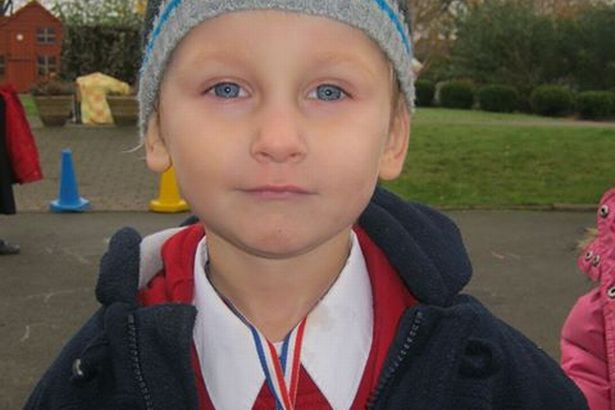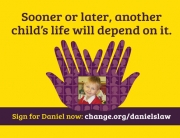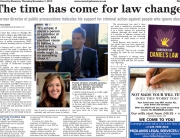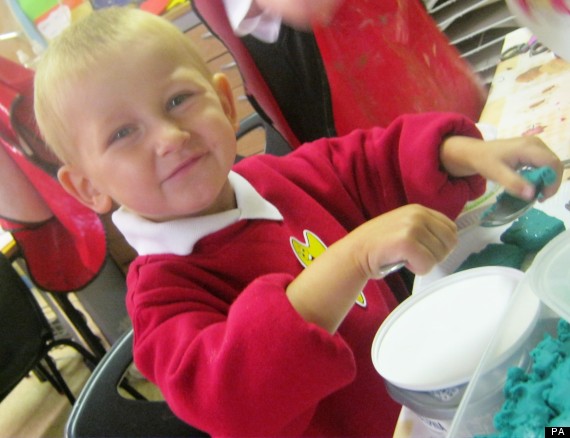Monday marked the second anniversary of Daniel’s death 03.03.12. Although there was disappointingly little by way of national coverage in memory of Daniel, the campaign for Daniel’s Law made some great progress and secured a number of new, influential allies.
We continue to work ever more closely with the Mandate Now coalition of survivors (of child abuse) charities; Tom Perry leads this initiative and is a former abused pupil of Caldicott School in Buckinghamshire – notably, Nick Clegg also went to this school. Following the disgrace of Caldicott headlines in late January and the presentation of still more indisputable evidence that staff were aware abuse was occurring over years but failed to report it, the question of child safeguarding was once again raised in Parliament in early February. Tessa Munt MP was quick to ask Edward Timpson ‘Will the Minister reconsider mandatory reporting?’, to which Mr Timpson gave his stock response, that current guidance is ‘crystal clear’ and that no intervention is required. Stephen McCabe MP asked whether the Minister was more afraid for lack of historic investigation or that the current system is ‘so full of holes’. Cheryl Gillan MP then called on Secretary of State for Education Michael Gove to meet with Tom Perry and… he agreed.
Tom met with Mr Gove at the end of February and a dialogue is now underway around what evidence, data and research might be required to effect legislative change. To date, although government and the NSPCC (which may as well be a government department) continues to assert that evidence proves mandatory reporting does not work, the only evidence that has been presented or referenced is the work of Dr Ben Matthews from the University of Queensland in Australia, who told Panorama last November that his research had been mis-represented and that he is a firm advocate of mandatory reporting. It is therefore encouraging to even imagine that we might together progress the kind of research we need to prove that mandatory reporting works – as of course it does, in countries all over the world and as close to home as Northern Ireland.
This was important context to the presentation on Daniel’s Law which was delivered to the Lords and Commons Family and Child Protection Group on Tuesday, the day after the anniversary of Daniel’s death. Natalie Brammer has been supporting the Campaign for Daniel’s Law in many ways for some months now and managed to secure a ‘plea’ slot at a meeting of this Parliamentary Group via one of her clients. The Group was chaired by Baroness Knight of Collingtree and the presentation we made was favourably received by academic and expert child protection members alike. I was able to report back to BBC Coventry & Warwickshire on both the Lords presentation and our new dialogue with Gove as important developments, which in turn paved the way for my participation in a TV / radio panel debate last night to remember Daniel, two years on, and to ask what more can be done to safeguard children.
I joined Geoffrey Robinson, MP Coventry North West, and Ann Lucas, Head of Coventry City Council, in a new call on government to debate child protection issues including mandatory reporting (interestingly Edward Timpson declined to attend the meeting, although Dave Tucker of the NSPCC was there to toe the party line). Although many continue to politely sit on the fence in terms of mandatory reporting, I spoke with a number of important contacts after the debate and took away a very clear message – almost everyone said they would like to support the Campaign for Daniel’s Law, if only they believed government would provide the additional resource and training required to implement it effectively.
And this, as we know, is the burning issue. The government argument against mandatory reporting is not grounded in confidence for the current system – how could it be? No, the reason for the so far obtuse denial of any need for debate or intervention is clear for anyone with the stomach to look – it is based on the need to deliver only vote-winning results within time-frames determined by general elections; it is based on the apparently unpalatable notion of having to fund the kind of changes required to underpin mandatory reporting in a system that is already broken, full of holes and stretched to the limit.
What price then, for child protection? Let us hope that Mr Gove is beginning to wonder…







